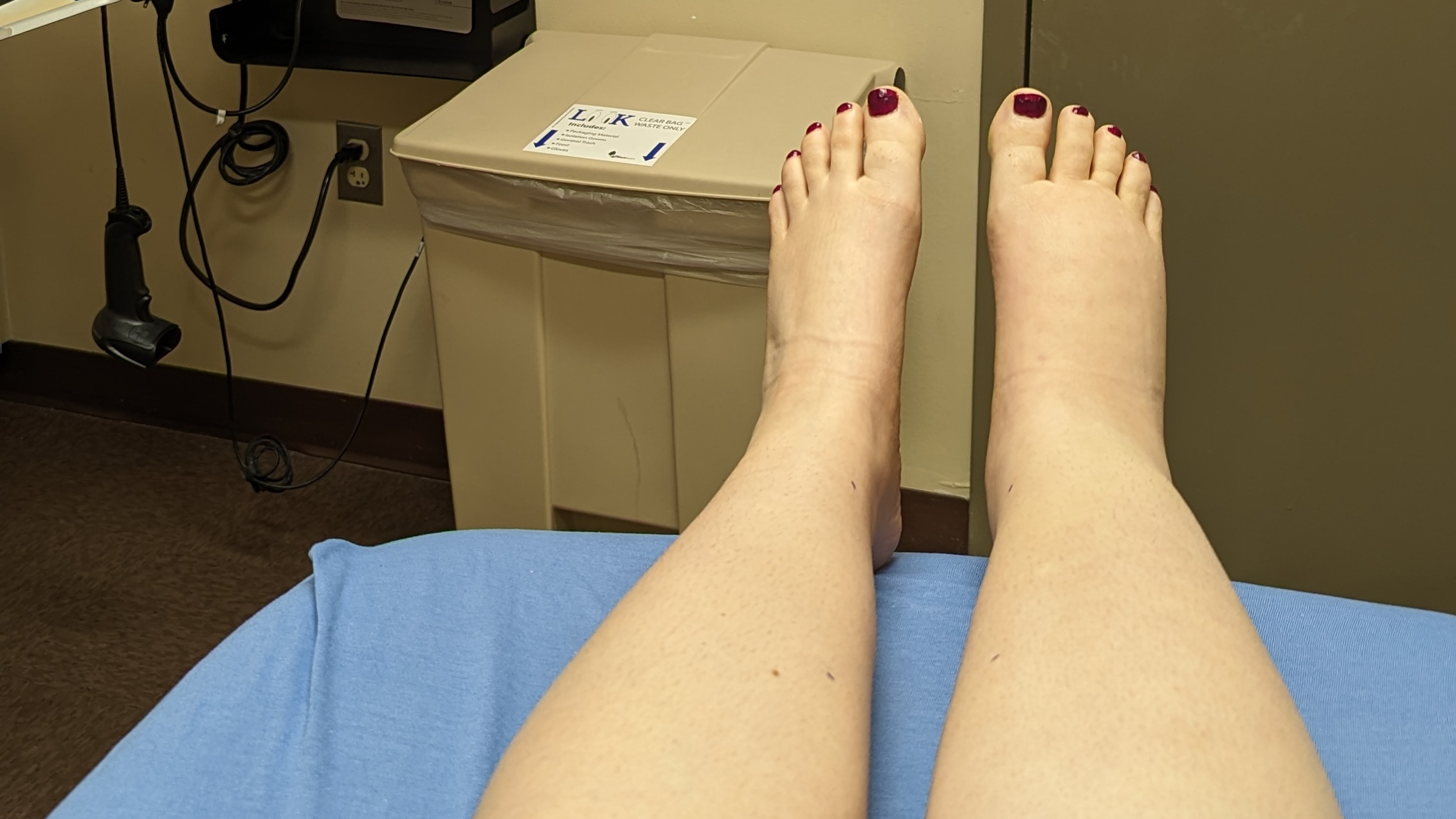There’s always something going on in the world of lymphedema and lymphatic research! It can be a lot to keep up with, so here’s a digest of some of the latest headlines from the past month carefully curated to keep you in the lymphie loop.
“Invisible man? Move over for invisible mouse”
New imaging technology reveals mice’s underlying nerves and lymphatic system in unprecedented detail:
The method is the newest iteration of tissue-clearing technology, in which researchers use chemical baths postmortem to render organs or even whole organisms transparent. Looking through the clear layers of tissue, researchers can observe cells tagged with the glow of fluorescent proteins.
“UCPH researcher receives prize for research into brain’s cleaning system”
Professor Maiken Nedergaard from the University of Copenhagen is this year’s recipient of Stora Nordiska Pris, one of the largest medical awards in Scandinavia. She receives the prize for her discovery of and research into the brain’s cleaning system, the glymphatic system.
The system is partly similar to the lymphatic system in the rest of the body, hence the ‘lymphatic’, while the ‘g’ is for glial cells, which are responsible for the transportation of fluids.
READ THE ARTICLE AT NEWS MEDICAL.
“UC researchers granted $3.4 million by NIH to study gastrointestinal lymphatic system”
A team of researchers at the University of Cincinnati College of Medicine have been awarded $3.4 million by the National Institutes of Health (NIH) to study the role of the gastrointestinal lymphatic system in dietary nutrient absorption and the transport of signaling molecules.
“Compared to other systems, cardiac or respiratory, we currently have a relatively poor understanding of the physiological significance of the GI lymphatic system, necessary for normal functioning of the GI tract and overall metabolic health,” says principal investigator Patrick Tso, PhD.
READ THE ARTICLE AT THE UNIVERSITY OF CINCINNATI ACADEMIC HEALTH CENTER.
“Lymphatic and Circulatory Spread of Endometriosis”
It is thought that endometriotic tissue may be spread through the circulatory and lymphatic system; this theory may explain the occurrence of endometriotic lesions at distant sites, such as the lungs, eyes, and brain.
The idea that endometriotic tissue spreads through the lymphatic system is further supported by the fact that endometriotic lesions tend to have a high lymphatic vessel density.
READ MORE AT ENDOMETRIOSIS NEWS.
Remembering Ernie Foss, Jr.
Some of you may know or recognize Ernie Foss, Jr., from our online lymphedema community. He lived in California and, in the wake of the recent wildfires, he tragically did not make it to safety in time: Ernie and his dog, Bernice, were found together outside their home; his stepson and caretaker, Andrew Burt, had dragged the bedridden Ernie outside in an attempt to evacuate. Andrew was later found to have died in the fire as well.
By all accounts, Ernie was a talented musician, beloved father, and friend — “perfectly imperfect,” according to daughter Angela Loo. His final years were lonely ones however, and the people-oriented Ernie struggled with isolation while confined to his bed with advanced lymphedema.
“Every day is a challenge to me physically and emotionally,” Ernie wrote on his last Facebook post. “I lost my wife six years ago and my firstborn son a little more than three years ago. I am asking for prayers and positive energy.”
My deepest condolences to Ernie and his loved ones. If you are moved to do so, please consider donating to assist Ernie and Andrew’s family with their memorial service and related expenses.
News coverage about Ernie:
- “San Francisco native first to be identified among 29 dead in Camp Fire” -Fox KTVU
- “More victims of deadliest California wildfire identified” -NY Post
- “A ‘Perfectly Imperfect’ Life: The Victims of the California Wildfires” -The New York Times
Lymphatic filariasis news
Lymphatic filariasis (commonly known as elephantiasis) is a neglected tropical disease caused by parasitic infection to the lymphatic system. It is the leading cause of lymphedema worldwide: of the over 120 million people infected, 40 million are incapacitated or disfigured by the disease.
“Case Western Reserve-Led Study Triggers Change in WHO Guidelines for Treating Lymphatic Filariasis, Now Targeted for Elimination”
Researchers from Case Western Reserve University School of Medicine have shown that a single “cocktail” of three pill-based anti-parasite medications is significantly more effective at killing microscopic larval worms in people diagnosed with lymphatic filariasis, commonly known as elephantiasis, than other standard two-drug combinations previously used in the global elimination effort.
“Lymphatic filariasis has been targeted for global elimination by the World Health Organization (WHO) in arguably the largest mass drug administration program ever attempted for an infectious disease,” said the study’s lead author, Christopher L. King, MD, PhD, professor of international health, medicine, and pathology at Case Western Reserve University School of Medicine. “Our findings offer the promise of effectively banishing this disease from a long list of health threats facing people in many developing countries.”
READ MORE AT CASE WESTERN RESERVE UNIVERSITY.
“Breakthrough Lymphatic Filariasis Treatment Piloted In Kenya”
A new triple-drug therapy was piloted in a tremendous effort led by the Kenyan Ministry of Health and supported by a consortium of international partners; it is a key step towards achieving Kenya’s five-year National Strategic Plan for the control of neglected tropical diseases.
“The Gates Foundation is proud to support the Kenyan government’s launch of the first IDA pilot in Africa,” said Trevor Mundel, President of Global Health, Bill & Melinda Gates Foundation. “People at risk of LF live in some of the world’s poorest and hardest-to-reach communities, and the introduction of triple-drug therapy will help stop transmission and end LF for good.”
READ THE ARTICLE AT EAST AFRICAN BUSINESS WEEK.
“US institute lauds Vietnam’s elimination of lymphatic filariasis”
Vietnam has eliminated lymphatic filariasis thanks to the drastic efforts of the Vietnamese Government, the World Health Organization, and the US Agency for International Development, along with GlaxoSmithKline Pharmaceuticals Ltd’s donations of medications.
READ THE ARTICLE AT VIETNAM PLUS.
Compressed news
- Woman walks with a purpose after fighting through painful disease: Having lived with lymphedema her entire life, Amy Rivera decided she didn’t want it to control her life. Instead, she wanted to be a spokeswoman, and she wanted to defeat it. [KSDK St. Louis]
- A lymphedema patient in Wisconsin creates a nonprofit organization to empower fellow patients through education and financial assistance: “Lymphedema does not discriminate. Anyone can develop lymphedema or be born with it. It’s one of those diseases that’s huge but no one knows about it,” says Jennifer Lee Edmondson. [Post Crescent]
- Woman calls for the Scottish Government to provide better treatment for lipedema patients: “The only known ‘cure’ for lipoedema is liposuction. But with only one NHS consultant in Scotland doing this work and the association with cosmetic surgery, health boards are extremely reluctant to fund operations,” says Anne Henry. “But this isn’t a case of getting ‘beauty treatment’ on the NHS. I’ve been left in a desperate situation by a condition that makes it so difficult for me to walk or move without debilitating pain and distress.” [Sunday Post]
- Claire Tickle had nine operations to remove 72.6 liters of lipedema fat – nearly 128 pints – from her legs and body: “After the final operation I felt extremely relieved … I was finally able to do things which I would just dream of, including playing with my ten-year-old son and going out with friends.” [Daily Mail]
- A Bournemouth health support group has claimed that services for people suffering with lymphedema are not adequate: “Secondary lymphoedema as a result of cancer treatment is well understood and patients receive appropriate care through the local hospice services,” says Anne Milward, who is a member of the Bournemouth and Poole Lymphoedema and Lipoedema Support Group. “However, patients with Primary lymphoedema and lipoedema can wait so long for an accurate diagnosis that their conditions, with swollen limbs and infections, deteriorate dangerously.” [Bournemouth Daily Echo]




Leave a Reply